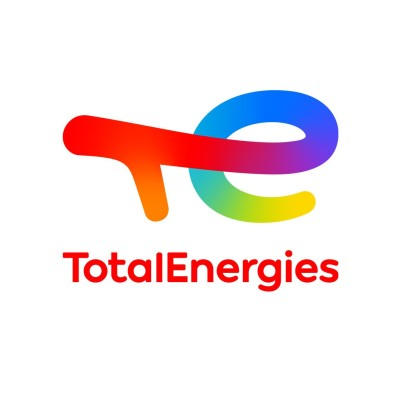Brazil's Mero-4 Project: A New Dawn in Offshore Oil Production
May 29, 2025, 12:23 am

Location: United Arab Emirates, Ajman Emirate, Ajman
Employees: 10001+
Founded date: 1924
In the vast expanse of the Santos Basin, a new chapter in offshore oil production has begun. The Mero-4 project, a collaboration of major players in the energy sector, has officially commenced production. This venture promises to reshape Brazil's energy landscape and bolster global oil supplies.
On May 24, 2025, the Mero-4 floating production storage and offloading facility (FPSO) Alexandre de Gusmão began its operations. Situated 180 kilometers off the coast of Rio de Janeiro, this facility is a marvel of engineering, operating in depths of up to 2,100 meters. It’s a giant in the ocean, capable of producing 180,000 barrels of oil daily and processing 12 million cubic meters of gas. This is not just a project; it’s a lifeline for energy needs.
The Mero field is a part of the Libra Production Sharing Contract, a significant agreement signed in December 2013. It involves a consortium of companies, including Petrobras, Shell Brasil, TotalEnergies, and CNOOC, among others. Each partner brings unique strengths to the table, but Petrobras stands as the operator with a commanding 38.6% stake. The collaboration is a testament to the power of partnership in navigating the complexities of deep-water oil extraction.
The Mero-4 project is not just about quantity; it’s also about quality. The FPSO is equipped with cutting-edge technology, including intelligent well completion systems. This allows for seamless switching between production and injection wells, maximizing efficiency. It’s like a conductor leading an orchestra, ensuring every note is perfectly timed.
But the Mero-4 project also embraces a vision for a greener future. It incorporates the High-Pressure Separator (HISEP) technology, which separates oil from gas underwater. This innovation not only boosts production but also minimizes emissions. In an era where environmental concerns loom large, this project stands as a beacon of responsible energy development.
The operational capacity of the Mero field is impressive. With the addition of Mero-4, the total installed production capacity of the field rises to 770,000 barrels per day. This surge in production is crucial as the world grapples with fluctuating energy demands and geopolitical tensions that threaten supply chains.
The timing of this project is significant. As global economies rebound from the pandemic, the demand for energy is on the rise. Mero-4 is poised to play a pivotal role in meeting this demand. Shell, the second-largest oil producer in Brazil, has committed to increasing its upstream and integrated gas projects, aiming for a peak production of over 1 million barrels of oil equivalent per day by 2030. This ambition reflects a broader trend in the industry, where companies are racing to enhance production capabilities while addressing environmental challenges.
However, the road ahead is not without obstacles. The oil and gas industry faces a myriad of risks, from price volatility to regulatory changes. The geopolitical landscape is ever-shifting, and the impacts of climate change are becoming increasingly pronounced. Companies involved in the Mero-4 project must navigate these uncertainties while striving to deliver on their commitments.
The collaboration among international partners in the Mero-4 project highlights the interconnectedness of the global energy market. CNOOC, a key player from China, holds a 9.65% interest in the project. This involvement underscores the growing influence of Asian companies in the energy sector, as they seek to diversify their portfolios and secure energy resources.
As the Mero-4 project ramps up production, it will not only contribute to Brazil's economy but also impact global oil markets. The additional supply could help stabilize prices, providing relief to consumers and businesses alike. In a world where energy is the lifeblood of economies, every barrel counts.
In conclusion, the Mero-4 project represents a significant milestone in Brazil's offshore oil production journey. It combines advanced technology, strategic partnerships, and a commitment to sustainability. As production begins, all eyes will be on this project, watching how it unfolds in the coming months and years. The ocean holds many secrets, and Mero-4 is just the beginning of what lies beneath. The waves of change are here, and they promise to reshape the energy landscape for years to come.
On May 24, 2025, the Mero-4 floating production storage and offloading facility (FPSO) Alexandre de Gusmão began its operations. Situated 180 kilometers off the coast of Rio de Janeiro, this facility is a marvel of engineering, operating in depths of up to 2,100 meters. It’s a giant in the ocean, capable of producing 180,000 barrels of oil daily and processing 12 million cubic meters of gas. This is not just a project; it’s a lifeline for energy needs.
The Mero field is a part of the Libra Production Sharing Contract, a significant agreement signed in December 2013. It involves a consortium of companies, including Petrobras, Shell Brasil, TotalEnergies, and CNOOC, among others. Each partner brings unique strengths to the table, but Petrobras stands as the operator with a commanding 38.6% stake. The collaboration is a testament to the power of partnership in navigating the complexities of deep-water oil extraction.
The Mero-4 project is not just about quantity; it’s also about quality. The FPSO is equipped with cutting-edge technology, including intelligent well completion systems. This allows for seamless switching between production and injection wells, maximizing efficiency. It’s like a conductor leading an orchestra, ensuring every note is perfectly timed.
But the Mero-4 project also embraces a vision for a greener future. It incorporates the High-Pressure Separator (HISEP) technology, which separates oil from gas underwater. This innovation not only boosts production but also minimizes emissions. In an era where environmental concerns loom large, this project stands as a beacon of responsible energy development.
The operational capacity of the Mero field is impressive. With the addition of Mero-4, the total installed production capacity of the field rises to 770,000 barrels per day. This surge in production is crucial as the world grapples with fluctuating energy demands and geopolitical tensions that threaten supply chains.
The timing of this project is significant. As global economies rebound from the pandemic, the demand for energy is on the rise. Mero-4 is poised to play a pivotal role in meeting this demand. Shell, the second-largest oil producer in Brazil, has committed to increasing its upstream and integrated gas projects, aiming for a peak production of over 1 million barrels of oil equivalent per day by 2030. This ambition reflects a broader trend in the industry, where companies are racing to enhance production capabilities while addressing environmental challenges.
However, the road ahead is not without obstacles. The oil and gas industry faces a myriad of risks, from price volatility to regulatory changes. The geopolitical landscape is ever-shifting, and the impacts of climate change are becoming increasingly pronounced. Companies involved in the Mero-4 project must navigate these uncertainties while striving to deliver on their commitments.
The collaboration among international partners in the Mero-4 project highlights the interconnectedness of the global energy market. CNOOC, a key player from China, holds a 9.65% interest in the project. This involvement underscores the growing influence of Asian companies in the energy sector, as they seek to diversify their portfolios and secure energy resources.
As the Mero-4 project ramps up production, it will not only contribute to Brazil's economy but also impact global oil markets. The additional supply could help stabilize prices, providing relief to consumers and businesses alike. In a world where energy is the lifeblood of economies, every barrel counts.
In conclusion, the Mero-4 project represents a significant milestone in Brazil's offshore oil production journey. It combines advanced technology, strategic partnerships, and a commitment to sustainability. As production begins, all eyes will be on this project, watching how it unfolds in the coming months and years. The ocean holds many secrets, and Mero-4 is just the beginning of what lies beneath. The waves of change are here, and they promise to reshape the energy landscape for years to come.
